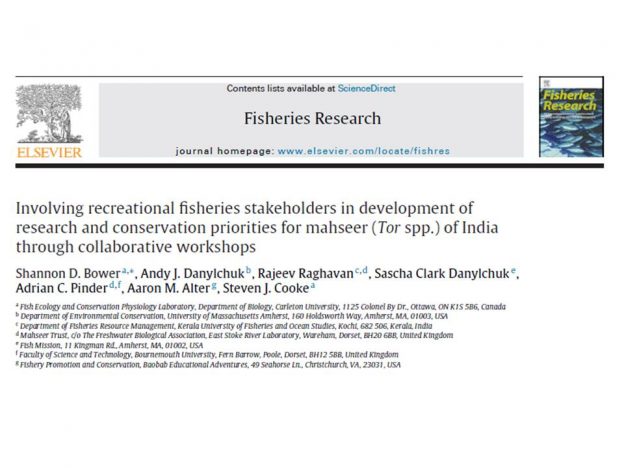Publication in ‘Fisheries Research’ on involving stakeholders for developing research and conservation priorities for mahseer fishes of India
The mahseer (Tor spp.) of India are a group of potamodromous cyprinids currently facing numerous challenges in their native ranges including overfishing, pollution, and hydropower development. As a result of such challenges, four of the seven Indian species of Tor have been listed as ‘Endangered’ on the IUCN Red List, including two of the most popular recreationally fished species, Tor khudree and Tor putitora. Stakeholders in the mahseer recreational fishery may serve as an ally for this group of iconic fishes, fostering aquatic stewardship and providing livelihood alternatives for poachers. Yet, information regarding species-specific responses to recreational fishing practices is lacking and a 2009 decree equating fishing with hunting in the Indian Wildlife Protection Act (1972) has since 2011 effectively banned anglingwithin protected areas and rendered the future of mahseer recreational fisheries elsewhere uncertain. In 2014, our team collaborated with local organizations, fisheries professionals, non-governmental organi-zations (NGOs), and anglers to conduct two stakeholder workshops designed to develop a research agenda for various species of Indian mahseer. General knowledge gaps identified in the two workshops were very similar and included biological, sociological, and economic considerations. The resulting research priorities in both locations strongly highlighted local context, indicating that while opportunities for addressing knowledge gaps through collaboration exist at the national scale, there is a need for regional or fishery-specific governance strategies and approaches to mahseer research and conservation

